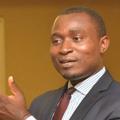Why Climate-Eval Must be Strengthened
A few weeks ago, Climate-Eval online community of practice registered the membership of Guene Herve Jean-louis, consultant and researcher working with Burkina Faso's National Institute of Statistics and Demography . Like many other people seeking membership of Climate-Eval, Guene was in need of specific information. In his case, he needed case studies on climate change and poverty. Once his membership granted him full access, he skimmed through the website, found some relevant information and left.
"I did not find so much information related to what I wanted," he admits. But adds that "I downloaded some videos related to the subject matter I am working on and they have been really useful."
Guene might not have returned to the site frequently since his last visit but the fact that he found useful information underscores the absolute importance to constantly update it with cutting edge reports, studies, and information on climate change and development evaluation and subsequently broaden the scope of the repository.
Two years ago, Dr Christine Wörlen of Arepo Consult in Berlin, Germany completed a Meta Evaluation on climate change mitigation evaluations thanks in part to the input she got from members of the Climate-Eval community of practice and the rich studies contained in the resource section of the website.
"First of all, Climate-Eval provided me with the material for the study. And then, it gave me the opportunity to discuss my findings and my approach several times throughout the study with members of the community and that enriched my understanding of the issues at hand and of the interests of the target group largely," she said.
Far away from Washington DC where the website and community are managed, Climate-Eval and its Linkedin group have become platforms for debates, discussions, and cross fertilization of ideas. Bangladeshi Quamrul Chowdhury, veteran negotiator of the Least Developed Country (LDCs) group in the UN climate negotiation process is a constant knowledge broker on the linkedin group.
"I really enjoy Linkedin discussion forum and Climate-Eval website. It's a great open ended platform for climate practitioners and professionals who can share their on-the-ground experience, success stories, and cross-fertilize ideas."
Based in Dhaka, the adaptation capital of the world, Chowdhury despite his full plate regularly engages with professional colleagues on burning climate change and development issues. "We can make our professional arguments, critically look at each other's point of views and reach common ground through Linkedin discussion forum and Climate-Eval website."
While Rob van den Berg, Director of the Global Environment Facility Evaluation Office (GEFEO) is delighted to acknowledge the success of Climate-Eval, he confesses that the challenge is to move the community to the next level.
"Climate-Eval has produced: studies, webinars, discussions on Linkedin, partnerships with other organizations, with more than 1,500 members."
"For it to fulfill its full potential, it would require that all members of the community volunteer to share their perspectives, opinions and thoughts on whatever climate change and development related study, evaluation or report they may be working with" explains the GEFEO Director.
Constantly renewing the resource base, feeding it with new materials and diversifying the product formats is so vital for the sustainability of the community. In addition, stakeholders would have to take some sort of ownership in order to transform it into a premier knowledge sharing repository and platform capable of withstanding the challenges of the future. This is particularly true with stakeholders in the developing south.



